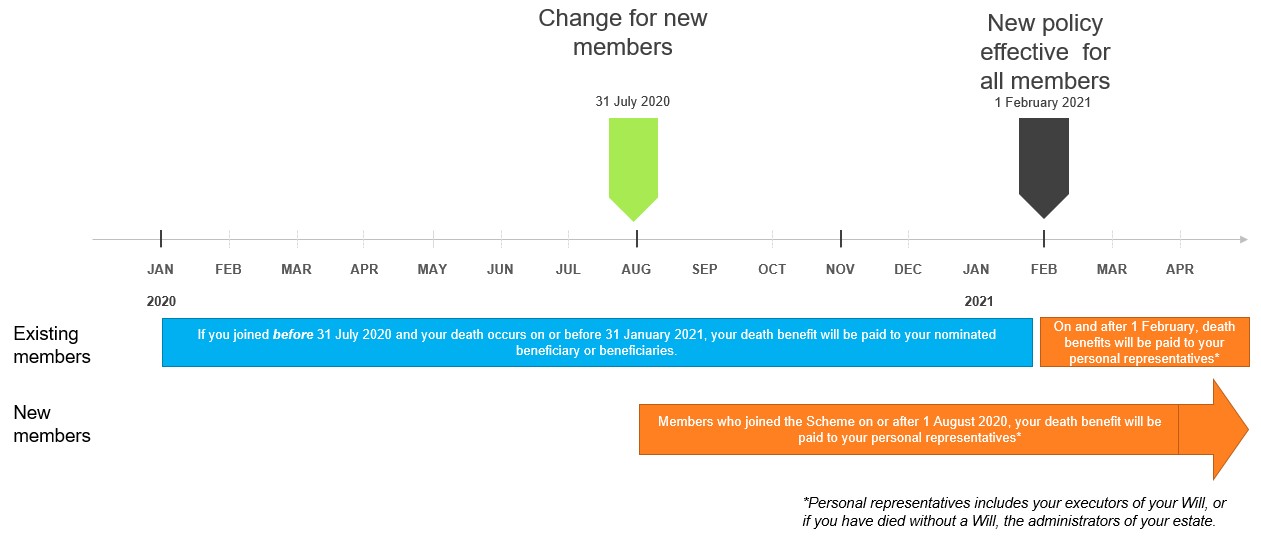Death benefit payment process changes
On 31 July 2020 the death benefit payment process is changing.
To date, the Scheme’s Trust Deed has required that when you die, your death benefit (other than any locked-in balance, which must be paid to your estate) is payable at the Trustee Directors’ discretion to all or any of:
- your nominated beneficiaries; or
- your estate; or
- any person to whom we consider you owed a legal or moral obligation of support.
Those provisions, and the resulting need for the Trustee Directors to make detailed enquiries and exercise informed discretions, have led in practice to administrative complications, delay and uncertainty.
The Trustee Directors also wish to ensure better protection for members’ and their dependants’ personal privacy, by not having to delve for fact-finding purposes into personal and family circumstances at a difficult time.
Most modern retirement schemes (including all KiwiSaver schemes) now provide for death benefits to be paid automatically to members’ estates. This means that in effect, a member’s Will operates as a binding direction concerning how all of the benefit is to be paid.
For these reasons, the Trustee Directors will soon amend the Trust Deed to transition to paying all death benefits to members’ estates.
This change impacts members in the following ways:
New members who join the Scheme on or after 1 August 2020 will have any death benefit paid automatically to their personal representatives.
Existing members (those who joined the Scheme before 31 July 2020) can still nominate or update their beneficiaries by completing the nominated beneficiaries form (available by request from dairy@mercer.com). While we will take your nominated beneficiaries into account, the Trustee Directors have absolute discretion as to how and to whom your benefit is paid. If you death occurs on or after 1 February 2021, your death benefit will be paid to your personal representatives.
After 1 February 2021 all members’ death benefits will be paid automatically to their personal representatives. |
The illustration below sets out the transition process for both member groups.
It is very important to have a Will and keep it up to date, especially when your personal circumstances change. Having a valid and up-to-date Will allows you to be confident your affairs will be settled as you would like, enables your estate to be administered quickly and economically, and makes the process easier for your next of kin.
If you don’t have a Will, you can get one drawn up by a trustee corporation or a lawyer, or by preparing one yourself using a write-your-own-Will toolkit purchased from a book retailer or an online Will service. If writing your own, you may wish to have it checked by a lawyer to ensure everything is in order. You can find out more about Wills by visiting the Sorted website.

29 July 2020